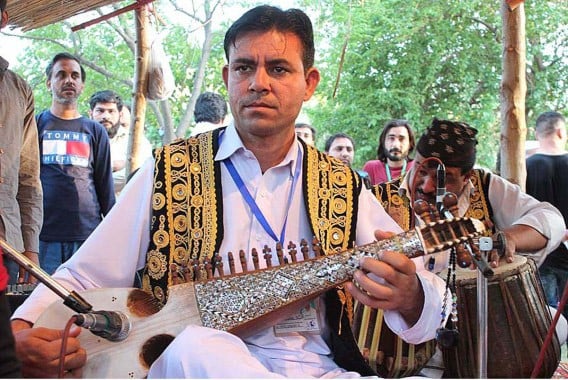
The KP government has taken the lead in announcing a culture policy but the timing puts its intent to question

Khyber Pakhtunkhwa has taken the lead in the announcement of a Culture Policy compared to the federation and other federating units. After devolution effected under the Eighteenth Amendment, culture too has become a provincial subject. While others were merely articulating the need, KP presented the draft and had it approved from the provincial cabinet last week, according to reports.
This may be at odds with the kind of situation that exists in the province. The environment may not be very conducive for certain types of cultural expression, especially the performing arts. A month does not elapse when news gets flashed in the media of an actor, particularly females, being either kidnapped or killed or a musician being forced to flee the area. The latter usually flee the province for neighbouring Afghanistan which almost shares the same culture or to the West where they do not feel total aliens as a considerable diaspora exists that hosts and provides for them.
While their home country is deprived of their artistic contribution, a country elsewhere benefits from it and adds another flower to its own bouquet of expression.
The first thing that rankles is the timing of the approval of the policy. In Pakistan, under the constitution, the time allotted to a government is a maximum of five years. In this unstable polity, rumours start even earlier of replacing the government. After about three years, impatience begins to surface and very soon the proposal of a supra body to keep relevant checks and balances on the democratic elected order gather frenzied pace. The tenure of this government is to end in a few months, and even if the policy is formally announced, there will be hardly any time for it to be implemented.
Usually, when a policy is announced, its gestation needs time before its progress can be reviewed, and corrective measures need to be put in place to ensure its keeping the course. So it is in the first year that policies are introduced for them to prove their effectiveness over a period of the government’s tenure.
When a policy is announced this late, it either implies the party is absolutely confident it will get elected again or that it is not very serious about the issue. In more cases than one, such initiatives are taken late in the day because the party or the government only intends to go through the motions without actually meaning it. It does so to show to the electorate and others that it has done much or made the right moves on the issue while actually not being very keen to take on the challenge frontally.
The first requisite of a culture policy should be the provision of a free environment and an atmosphere where this freedom in art forms can be exercised without fear and hesitancy. It appears the steps which the government has taken in the earlier part of the tenure do not instill much confidence. Over decades, especially since the government of Mutahidda Majlis e Amal (MMA) introduced many laws and policies that were basically obscurantist in nature, succeeding governments have not been able to remove or replace in any substantial way those retrogressive clauses.
Earlier, this very government too wanted to change the syllabi introduced in the province that decries plurality and diversity and insists on a narrow and literal reading of the text followed by its zealous implementation. Sadly, such was the backlash that some of those initiatives had to be dropped, while the others only soft-pedalled.
No principled stance had been taken by the government of the province in providing freedom of speech and action, the two prerequisites that go in the making of a society where cultural expression can thrive. If the environment is not changed, it will all go underground the way it has been operating and functioning in the past.
Many have questioned the authority of governments to lay down a culture policy because it is suspected and feared that it is all meant to control expression from the top. Many countries do not have a culture policy but the cultural expression is ensured by the basic freedoms that are enshrined in the constitution. The communist/socialist states were applauded for providing generous grants and logistical support to the arts/literature but criticised at the same time for not providing the requisite freedoms. In the past, big empires were very keen to promote cultural expression but it was all tied to the lavish patronage that the monarch bestowed on the poet, painter and musician primarily meant to sing paeans to the king and country.
What is needed is to separate state patronage from that of the governments, and no one has really been able to achieve it. In the capitalist orders, kings have been replaced by the demands of the market which could be worse.
The democratic governments are supposed to provide an open environment where culture does not have to be an apology or a charter of rebellion. It should add to the multiplicity of views that the current political order deems desirable for growth of an individual and society. There is much that needs to be done in the province rich in its heritage that includes Hinduism and Buddhism. The province or even the country has failed to attract the required number of tourists that potentially are keen to visit sites so important to their civilisation and religion. But this is still less cantankerous than the living culture where the possibility of dissent and an alternative voice is perceived as a threat.